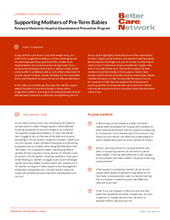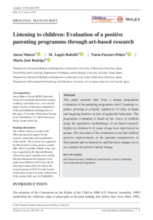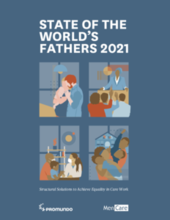Displaying 91 - 100 of 947
This study examines a promising new coping and parental competency (CPC) intervention for parents of children with special educational needs that targets parents' mental health outcomes.
This article explores the possibilities of a systemic approach in the support of parents whose children are placed in public care.
This study examined the effectiveness of a two-session preventive parenting intervention, the Parent Check-In. The intervention, grounded in Self-Determination Theory (SDT), is designed to facilitate adaptive parenting, specifically autonomy support, structure and involvement, and parenting efficacy, and to increase autonomous self-regulation and decrease behavior problems in children.
In this video, Grace Mwangi discusses the specific support needs of mothers of pre-term babies or those with a congenital condition.
This paper presents data from a unique programme evaluation of the parenting programme titled ‘Learning together, growing as a family’ applied in 14 cities in Spain and targeting families at risk of neglectful behaviour.
This article explores this workshop in terms of its relationship with the daily lives of participants, based on one year of fieldwork focused on families with young children in a low-income neighbourhood in Santiago.
This article presents descriptive information on the 25 families that enrolled and received Success Coach services and 38 families in a control group using data from baseline and follow-up surveys and administrative data to examine safety, placement stability, and well-being.
The New Neighborhood is a limited series podcast that explores some of the dramatic changes taking place across the U.S. as people work to reinforce a sense of community, support young children and families, and work to build equity within communities.
The State of the World’s Fathers 2021 report – the fourth in the series – presents research on care work during the COVID-19 pandemic, focusing on structural barriers that prevent equitable distribution of caregiving between women and men.
This course is a resource for parents or those who work with parents of young children to support them to provide brain-building experiences and nurturing care.



